Welcome to my blog!
Every morning, I begin with a cup of coffee and 15 minutes of free thinking. I write down everything that comes to mind, from new ideas to thoughts that emerged overnight. This is where I develop and refine my new research. You'll find some repetition and ideas still in progress. Some might seem unusual or unclear at first, but that's part of the journey! I'm excited to share how my ideas form and evolve.
Logic, the True Self, and Authenticity
This post explores the intriguing connection between logical thinking and authenticity, suggesting that coherence rather than truth might be the key to understanding our true selves.
Can logic help you be more authentic? That one might sound a bit weird, but I think there’s an intriguing thought to explore. Authenticity is a complex concept with multiple interpretations. While logic might help in figuring out the coherence of concepts or definitions of authenticity, as it often does, this is not what I want to think about this morning. I’m curious to ask whether logic, or logical thinking, can inspire a novel way of thinking about authenticity.
To contrast with a common notion of authenticity will help situate what I mean. You might have heard people claiming the empowerment of “being your true self,” which I take to mean liberating your core identity instead of repressing, suppressing, or hiding it. But truth is very demanding. I don’t really know what my “true self” is, and having strong philosophical inclinations towards the expression of such slogans, I find myself wondering what a self is and what it means for it to be true. Is there something essential about me that makes me who I am and that I have to respect and honour? What does it mean to be a “true” self, as opposed to what? A false self? A fake self? A constructed self?
Instead, here’s my thought with using logic. Logic and truth are two different and independent things. In Logic in the Wild, I advocate for logical thinking to liberate communication and interaction in society from being clashes of opinions and disagreements of beliefs. Instead, logic provides a “neutral space of dialectical enquiry,” where neutrality means a suspension of belief, a retraction of strong opinions, for the dialectical pursuit of shared agreement and coherence. Coherence is the key word here, and this is what logic offers to the enquiring mind: to seek and settle for coherence when truth is out of reach.
Why not adopt the same approach towards how we are in the world? Instead of thinking of authenticity as the expression of a “true self,” could we think of it as the coherent experience of our being? We change all the time, we adopt different roles in society, at work, with friends, or with family. We learn new things, we forget old ones. We are in constant flux. Finding a stable “true identity” in that constant flux can be a Sisyphean task, one that starts all over again as soon as we think we’ve got it. But coherence doesn’t require fixity. Coherence is what helps us sustain change, to respond in patterns we expect and understand, to act in ways we control, to own ourselves.
Instead of seeking to be your “true self,” then, here’s the exercise I propose towards authenticity: seek to be a “coherent self.”
Logic in Everyday Life: Beyond Spock's Sacrifice
Exploring a concrete example of logic in everyday life, this post challenges the perception of logic as an emotionless, external tool. It highlights how logic protects us by guarding coherence in reasoning, rather than dictating surprising, non-human decisions.
What is a concrete example of logic in everyday life? This is not an easy question to answer, depending on the expectation of the response. If you want a concrete case in which you have to make a decision and expect logic to give you a clear, perhaps unexpected answer, I’m afraid you’ll be disappointed. Unfortunately, people often think of logic as a tool that is external, devoid of emotion, non-human. A tool that makes rational decisions, decisions that go against the emotional flow, against human nature.
When Spock decides to sacrifice himself to save the rest of the crew (and the universe?), he tells his captain: “Logic clearly dictates that the needs of the many outweigh the needs of the few.” This justification goes against the love and friendship his captain and friend feel for him, prompting his sacrifice. Once you read Logic in the Wild, I hope you’ll see that logic is not a discipline that dictates truths. Logic doesn’t adjudicate content; it guards coherence. It might be that Spock’s reason for his sacrifice is coherent with the rest of his beliefs, but that doesn’t mean logic prevents alternative choices.
If you expect a concrete example like Spock’s sacrifice to illustrate how logic becomes a guiding light when human emotion fails, but also an example more relatable than sacrificing yourself for the greater good, I’m afraid I’ll disappoint you. However, I can provide an example that isn’t so much guiding as it is protective. Logic is good at helping you slow down your thinking, to think it through. Humans have psychological biases that help us make quick decisions, which is indeed helpful in many situations, but in a complex society, it can be exploited.
Suppose I tell you that I’ll buy you a diamond ring if I love you, and I come back the following day with a diamond ring, will you think this confirms my love for you. Why? There are many other reasons I could buy you a diamond ring, such as tricking you into feeling secure in my love. I didn’t promise you that “if I buy you a diamond ring, then I love you,” but the other way around: “if I love you, then I’ll buy you a diamond ring.” Inferring from my promise that I love you when you get a diamond ring is committing the fallacy known as affirming the consequent.
A similar example, with the same logical structure, is this: There’s water on Mars if there’s life on Mars. NASA recently discovered water on Mars. Therefore, there’s life on Mars. Do you feel the same pull with this different content? The logic is the same, yet you might be fooled when it’s about love and diamond rings, but not when it’s about water and life on Mars. Just as with the diamond ring example, the fallacy lies in affirming the consequent. I didn't say that "if there's water on Mars, then there's life on Mars". I don't believe that. But I do believe that "If there's life on Mars, then there's water on Mars", because I believe that water is necessary for life. I wouldn’t infer from my belief and the discovery of water that there's life on Mars, nor should you infer that I love you from a diamond ring present under the promise that I'll buy you a diamond ring if I love you. That’s how logic can protect you—by guarding coherence in reasoning, allowing you to swap content while keeping the logical structure, and realizing when you’re being fooled by bad reasoning.
In many cases where Spock claims to follow the dictates of logic, it turns out he is fooled into thinking that his strong opinions and beliefs are the result of logical thinking when they aren’t. I’m afraid Spock is a bad role model when it comes to logic. Sorry geeks.
The Principle of Charity in Argumentation
This post explores the principle of charity in argumentation, emphasizing the importance of interpreting others' arguments generously and the role of logic in fostering charitable discourse.
I just saw a call for a paper for a special issue on the principle of charity. Maybe I could contribute something. Let’s brainstorm. The principle of charity, as I teach it in my critical thinking classes, is to treat others as intelligent people. This means that we should interpret their arguments with a generous mind, correct for blunders, and help revise mistakes. Why be so charitable? Because if we don’t agree with them, showing that even the better version of their argument still doesn’t work is more effective, in contrast to the straw man fallacy, which is to debunk a much weaker version of the view they proposed. If we agree with them, everyone benefits from learning to present the view in more coherent or cogent ways. And if we haven’t settled on the issue, we wish for a quality exchange, not a populist debate like the ones politicians keep serving us these days.
What I can add following my recent work in Logic in the Wild to the debate is that being charitable isn’t only about the content of the views, but about the coherence. More importantly, logic can generate uncharitable reactions. How? By adopting the wrong logical standards of analysis. A clear case would be to treat an argument as being deductive when it is non-deductive, i.e., to dismiss the argument for being invalid when it wasn’t intended to live up to strict standards. Most people don’t know the difference between deductive and non-deductive arguments; indeed, the topic is controversial amongst experts. Most people aren’t attuned to valid argumentation, and I’m afraid to say, that’s also true for people who have taken classes in logic or critical thinking. The standards of validity aren’t appropriate, for instance, in the court of law that adopts a “beyond reasonable doubt” attitude. Beyond reasonable doubt leaves room for error, validity doesn’t. The same applies in everyday life, especially on difficult matters that are difficult to settle.
Being logically charitable, then, is to treat others not only as intelligent people but as coherent reasoners. It is to assume that people can organize their thoughts in a coherent fashion, even if the way they articulate their views might not live up to the strictest logical standards. If those standards aren’t fit for purpose anyway, to reject their view for being invalid is to treat them uncharitably.
The Logical Community
This post explores the necessity of logic in community development, highlighting how logical interaction fosters a neutral space for dialectical enquiry, enabling diverse perspectives to find common ground without imposing majority beliefs.
Why do we need logic in the community? This is a more important question to ask than why individuals need logic. I suspect many think of logic as a reasoning tool that guides in decision making, countering an emotional mind (perhaps a compassionate mind?) and that makes the “tough decision,” as the current prime minister of New Zealand keeps saying. What are tough decisions? I suppose something like cold-hearted, non-emotional, goal-oriented, and maybe also profit-maximising decisions? The kind of cold, rational, masculine strong mind that isn’t afraid of doing what’s right, where “what’s right” is assumed to be some universal goal of individuals. I hope you get the picture. I do think logic isn’t about that at all, even at the individual level, but still think that countering that kind of view isn’t the primary need for logic we have in the modern world.
No, instead, and this is why I asked my original question as being about the community, I want to ask a tougher question about why a lack of logical interaction (not just a lack of logic) is a barrier to community development. What would be better logic? In Logic in the Wild, I develop logic as the communal tool that provides a “neutral space of dialectical enquiry.” It is a bit of a mouthful, but it’s easy to break down. An enquiry is a shared intellectual goal—to reach a decision, come up with a plan, figure out the truth, or express and hear each other’s stories. A dialectical enquiry is one that seeks different perspectives. If you have a group of people, each will have their own view guiding their interest and ways of thinking about the enquiry, and a dialectic practice is to entertain each on their own terms.
Neutrality, then, is what is hardest to establish in a dialectical space of enquiry. It occurs when people do not clash on their strong opinions or their fundamental beliefs, but instead seek to appreciate the coherence in each other’s views. If we can’t appreciate that others can reason coherently, even though we don’t share fundamental beliefs, we won’t be able to reach the more important step in the enquiry, finding a common ground for resolution that accommodates everyone. Neutrality here means that no one can impose a way of thinking or believing in a disproportionate manner, even if it is the way of the majority.
What I notice a lot in recent discourse, now that oppressed minorities are finding platforms to contribute to social enquiries, is a rejection from the majority for not wanting everyone to abide by the will of the minorities, as if dropping the imposition of their beliefs in dialectical spaces amounted to disproportionately valuing those of minorities. See how I phrased it? I didn’t say that the majority had to adopt the views of the minorities, but rather that they should engage neutrally and not impose their ways of thinking and being on everyone. Everyone needs to establish neutrality, in my opinion, to achieve better dialectical results. Seeking common resolutions that are equitable in a community requires the majority to recognise and accept that their ways of thinking, their fundamental beliefs and strong opinions, can be individually preserved without being socially imposed. That is the logical way.
In this post, I explore how epistemic structures, akin to Kuhn's scientific paradigms, can become oppressive logical monsters. These structures, passed down through generations, resist change and contribute to systemic injustice. Can seeking coherence in dialectical enquiry offer a path to overcoming cultural incommensurability and fostering better communication across paradigms? Is a Kuhnian analysis the right approach to understand epistemic oppression?
Today I’m working again inspired by the work of Fricker, Dotson, Mills, and Young, trying to articulate a coherent and plausible way of thinking about how logic contributes to epistemic injustice. The pattern is that epistemic structures emerge within communities, are passed down from generation to generation, mutating over time, and acquiring inertia that makes them resistant to change.
I’ve been focusing on these papers recently because these are the papers I’m reading with my stage II and III epistemology students. One student suggested understanding what I call logical monsters (which I’ve called theoretical monsters and oppressive structural monsters in previous posts; I still don’t know what to call them) in terms of Kuhn’s idea of scientific paradigms. Paradigms are also theoretical structures that emerge from the praxis of scientific paradigms (I hope Kuhn wouldn’t mind me saying that), become dominant and the standards of “normal science,” until a revolution happens (like the one generated by Einstein at the start of the Twentieth Century).
One feature of Kuhn’s paradigm is that they are mostly closed entities that incorporate both theory and practice, and a revolution from a paradigm to another is not a mere transition, but indeed a revolution, producing new theories whose concepts are incommensurable with the corresponding concepts of the previous paradigms. An example used a lot in this literature is that of mass, which Einstein re-defined in his theory in ways that are incommensurable (i.e., logically incompatible) with the concept of mass defined by Newton. Incommensurability makes communication across paradigms impossible because the clash between the concepts produces incoherence, which in this literature is measured by inconsistency.
So the story is one of successive paradigms that grow out of a revolution until they become normalized until a new revolution happens that replaces them with yet new paradigms that are logically incompatible with previous ones. Now circling back to logical monsters (or epistemic structures), an issue that arises from applying a Kuhnian analysis is that it leads to something like “cultural incommensurability,” where the resistance to change (called inertia by Dotson) is the normalization of epistemic tools that could only be changed by a revolution that would construct a new paradigm incommensurable with the previous ones.
What I find unappealing in this picture is that it invites us towards cultural relativism, which I’m trying to counter by proposing that seeking coherence in dialectical enquiry can facilitate communication across cultures. I’m not getting much of a resolution here, but it’s the point of these daily blog posts, to spend time trying to articulate new ideas, and apply logic as I suggest in Logic in the Wild, in the neutral space of dialectical enquiry…
References:
Dotson, Kristie. “Conceptualizing Epistemic Oppression.” Social Epistemology 28, no. 2 (April 3, 2014): 115–38.
Mills, Charles W. "White Ignorance." In Race and Epistemologies of Ignorance, edited by Shannon Sullivan and Nancy Tuana, Chapter 1. Albany: State University of New York Press, 2007.
Young, Iris Marion. "CHAPTER 2. Five Faces of Oppression." In Justice and the Politics of Difference, 39-65. Princeton: Princeton University Press, 2012.
Kuhn, Thomas S. (Thomas Samuel), and Ian. Hacking. The Structure of Scientific Revolutions. Fourth edition. Chicago ; The University of Chicago Press, 2012.
The Emergence of Oppressive Structural Monsters
Short description: This post explores the concept of "emerging structural oppression," examining how power structures evolve and perpetuate systemic and epistemic oppression, with a focus on the role of logic in reinforcing these injustices.
Yesterday I talked about “the social construct of a theoretical monster that is based in a logic that reinforces its inertia and its resistance to change”. I know what I mean by that, but it’s quite a mouthful. Let me try again, in terms of “emerging structural oppression”. The idea is that power structures within a community and society evolve over time, dividing a population into those favoured by the structure, and those oppressed by it.
In a more traditional Marxist analysis of dialectical history, the structures come to be formed by the distribution of goods, resources, and means of production. In a thicker understanding, inspired for instance by the recent work of Iris Marion Young, the structure can arise from non-material power structures, such as systemic marginalisation or cultural imperialism. It’s this thicker sense of oppression that concerns me here because I’m targeting logical injustice in the community.
The historical aspect of the power structure is still very much relevant, however, as per Kristie Dotson’s understanding of irreducible epistemic oppression, or Charles W. Mills’s on white ignorance. I take an important lesson from Mills on white ignorance: systemic ignorance, based on collective (selective) memory and amnesia, evolves as epistemic systems that align with the upper side of a power structure. These epistemic systems become the norm in a society, the things that are taught in schools, that function in institutions such as courts of law, councils, and governments, and that people come to believe collectively.
Such epistemic systems include false beliefs or lack of knowledge (i.e., ignored information) that is passed on from generation to generation, acquiring inertia (as per Kristie Dotson’s analysis) that generates epistemic oppression on top of material oppression. I believe the epistemic oppression that emerges in those power structures survives the change in material oppression, so that a social revolution of the Marxist kind, for instance, can leave the epistemic power structures intact.
Well, that’s still very abstract, I’m afraid! But I’m in the process of developing and articulating this idea to make it relevant to understanding the social role of logic in epistemic oppression. To be followed.
References:
Dotson, Kristie. “Conceptualizing Epistemic Oppression.” Social Epistemology 28, no. 2 (April 3, 2014): 115–38.
Mills, Charles W. "White Ignorance." In Race and Epistemologies of Ignorance, edited by Shannon Sullivan and Nancy Tuana, Chapter 1. Albany: State University of New York Press, 2007.
Young, Iris Marion. "CHAPTER 2. Five Faces of Oppression." In Justice and the Politics of Difference, 39-65. Princeton: Princeton University Press, 2012.
Epistemic Oppression, White Ignorance, and Systemic Logical Injustice
his post explores how logic can be systemically oppressive, drawing on the works of Fricker, Dotson, and Mills to examine the intersection of epistemic injustice, white ignorance, and the inertia of dominant epistemic systems.
I read the piece "White Ignorance" by Charles W. Mills this week with my students in a course on epistemology. We first read Miranda Fricker on epistemic injustice, then Kristie Dotson on epistemic oppression, and I’ve come to make more precise a feeling I’ve had about social injustice but couldn’t really put my finger on it. This is not a novel idea, but I think I’m in a better place now to articulate it and relate it to logic's role in the community. Can logic be systemically oppressive? I’m afraid so, yes.
Let’s take the papers in order. Fricker describes epistemic injustice with two types, testimonial injustice and hermeneutical injustice. Testimonial injustice is her primary instance of epistemic injustice, which is to wrong someone in their capacity as a knower. Hermeneutical injustice is when people or communities aren’t allowed to communicate how they make sense of the world; they are wronged in their capacity as understanders.
Dotson asked whether epistemic and hermeneutical injustice are reducible to social injustice. Testimonial injustice, after all, comes from a credibility deficit based on prejudice, which is pervasive in society, especially in groups that are systematically oppressed (like African Americans, to highlight an example). Dotson argues that testimonial injustice is reducible because nothing about the epistemic systems needs to change for rehabilitation. What needs to change is how society oppresses groups of people, not what epistemological tools are available.
As a case of hermeneutical injustice, Fricker describes how women had no epistemic tools to defend themselves in their work environment until they created the concept of “sexual harassment.” Once the concept became available and used widely, women were able to make sense of their individual experiences by sharing them with other women who experienced the same abuse but didn’t have a way to make it known. Dotson argues that this is similarly a type of reducible injustice because epistemic systems do not need to change for rehabilitation. What needs to happen is an expansion of the set of epistemic tools available. With the new concept established, social justice can be better described and addressed, but the epistemic system as such doesn’t change.
For Dotson, irreducible epistemic injustice occurs when the epistemic tools fail people in their capacity as knowers in a way that can’t be reduced to prejudice or addressed with an expansion of conceptual tools. The epistemic tools need to be revised. The system as a whole fails to allow a place to express coherent views, and more importantly, what fails is the inertia of the system, the resistance to change. What Dotson highlights here are the systemic patterns of epistemic oppression, something Fricker had included in her analysis.
Now, moving to Mills and "White Ignorance," we have a case of epistemic injustice which isn’t so much about the repression of knowledge from a marginalised group (which of course happens, as per Fricker and Dotson), but the preservation and replication of ignorance about the lives and experiences of the marginalised group. It’s a systemic pattern of ignorance in which a community or society fails to rectify what is believed and taught by people, from generation to generation. The way I want to express it is that society acquires theoretical monsters infested by errors, that ignore and erase important facts, and that become the dominant shared epistemic system passed on from generation to generation. Part of that theoretical monster is a way of articulating coherence, with deep conceptualisation that resists the logical articulation of alternative views, beliefs, and norms.
What we’re getting is the social construct of a theoretical monster that is supported by a logic that sustains its inertia and resistance to change. Well, that’s how I can articulate it to myself at the moment, and I’m also planning to develop this further in the next stage of my research.
References:
Fricker, Miranda. *Epistemic Injustice*. Oxford University Press, 2007.
Dotson, Kristie. “Conceptualizing Epistemic Oppression.” *Social Epistemology* 28, no. 2 (April 3, 2014): 115–38.
Mills, Charles W. "White Ignorance." In *Race and Epistemologies of Ignorance*, edited by Shannon Sullivan and Nancy Tuana, Chapter 1. Albany: State University of New York Press, 2007.
Well-Intentioned Interruption?
This post asks why we keep interrupting each other. Is it out of good intentions? Learn how a simple trick of posing uptake questions can help us do better.
Why do we do it? Is it for the sake of others, for the group, or out of selfish interest? I don’t think people are generally ill-intended when they fail to listen and keep interrupting each other. Sometimes with friends or family, we express genuine feelings about stressful situations related to health, relationships, or work. Our close ones want to help. They want to propose solutions they think will address our problems. They've understood enough about what we've said and know us closely, so they don't need the gory details of what happened or how we feel. They already empathise with us and want what’s best for us. It’s not so much that they don’t want to listen, but that they genuinely want us to feel better by seeking solutions. It's further a social role for family to offer parenting advice and friends to provide psychological support. People get used to performing their social roles and are comfortable in them. So they interrupt us before we can complete our thoughts, helping us see that our bad feelings are not necessary or justified, and offering solutions to get out of our problems. Does that help? Not in my experience. I can be my own parent, and if I need a psychologist, I’ll pay to see a professional. Unless I ask for brainstorming ideas or solutions, what I seek is to share my experiences with someone who will listen, understand, and take some of the stress away by simply being present and listening.
But why do we do it when it’s not about problems? Why do we interrupt each other and offer our opinions or beliefs without listening to what others think? Are we similarly trying to help? Instead of correcting their feelings, are we attempting to correct their beliefs? I don’t think people are ill-intended when they fail to listen to a thought being expressed, interrupt the speaker, and say what they think on the subject. I don’t think we realise when we keep stopping someone from sharing their thoughts. Or perhaps it’s some kind of learned behaviour to express something good and be rewarded for it. That would be more out of selfish interest, to present ourselves as good or smart people. Or perhaps it’s even a defensive reflex, out of fear of not showing that we understand the topic or have something interesting to contribute. It’s not always comfortable to be in a discussion when the rules of engagement are not clear. When do we transgress at a dinner party? At a family dinner? At the pub? When do we go too far? Some people will turn everything into a joke, either finding a funny angle on what is said or by expressing something relevant to the topic but in full irony. Is that a defensive measure? Because if we’re wrong, it doesn’t matter since we weren’t trying to be right, but to be funny.
A simple trick I’ve learned from working with my colleague Maree Davis in education is to teach students the use of uptake questions. Instead of saying, “I don’t agree with this,” or interrupting a speaker with what we think is a better opinion, ask a question that invites others to develop their ideas: “Why do you say that?” “Why do you believe that?” Leave it open; don’t ask a rhetorical question that tells them they’re wrong, such as, “Don’t you think it’s more like [express your opinion]?” I wonder what your experience will be. One thing I’ve noticed is that when people are given time to develop their ideas, they feel more comfortable expressing themselves in more nuanced, constructive ways that everyone benefits from listening to. That is one way to enforce neutrality in a dialectical space of enquiry.
The Need for a Neutral Space of Dialectical Enquiry in the Community
This post explores the importance of engaging with a logical mindset in discussions, using a personal experience to illustrate how logical enquiry can foster constructive communication.
This weekend someone asked me what were my thoughts on AI. I started trying to express why I thought the situation is rather scary, trying to lay out some elements to articulate some of my thoughts. But the person had an opinion on it, which I assume he thought was inconsistent with mine, and started interrupting me to tell me about it. I found myself in a defensive mood, not being able to express what I was trying to say, trying out different random things to see if it might catch, but he never listened to what I was saying for more than a couple of sentences. Eventually he stopped engaging with the subject and made it clear that he didn’t want to discuss it any further. I felt frustrated, unable to articulate a coherent thought, and dismissed from further exploration of the topic.
It’s not a topic I initiated; he asked me what I thought about it. But I didn’t sense that he wanted to hear what were my views. Elements of what he said when cutting me off were elements I could have worked with to try and reach a constructive resolution of the seeming clash between our ideas. I say a seeming clash because I’m not sure we hold such opposite views at all. What I’ve experienced, and I wrote Logic in the Wild partly to try and help people to better apply logic in the community, is a failure of engaging in what I call a “neutral space of dialectical enquiry”.
This is one of the main points of Logic in the Wild—the other being that logic is the Guardian of Coherence—namely that logic can help interaction in the community if people can enter a space with a logical mindset. To enter the space with a logical mindset is to suspend opinions and beliefs and focus on the coherence of other people’s views. Instead of cutting me off and asserting that AI isn’t scary because it’s just like previous technological advances, my friend could have asked why I found AI frightening. This approach would allow us to explore whether my concerns were coherent with other views he held, which we likely shared to a significant extent.
By immediately focusing on content and opinions, instead of coherence and logic, the dialectical space was closed off. It stopped being dialectical when we were not able to consider the topic from various perspectives and try to figure out what each other thought. Mind you, I probably failed to engage as well in my defensive reactions when I felt my ideas dismissed. Logic failed in this instance because we both failed to engage in a space with a common logical goal.
That’s one thing you’ll learn in Logic in the Wild, that logic isn’t an individualistic discipline, but rather a communal one that requires cooperation and constructive engagement with one another. Indeed, it can foster that constructive communication by offering neutrality and a way to explore various ideas without locking horns on basic beliefs and opinions.
I wonder if you’ve experienced similar situations in your community, and also if you can think of moments when you’ve failed to engage in a neutral space of dialectical enquiry. Do you reckon you could have done better had you approached the discussion with a logical mindset?
Is Logical Injustice Truly "Logical" or Merely Social?
This post explores whether logical injustice is a distinct kind of injustice or if it is reducible to social injustice, drawing parallels with epistemic and hermeneutical injustices.
What makes logical injustice a “logical” kind of injustice and not just injustice? Is logical injustice reducible to social injustice? The same question was asked, for instance, by Kristie Dotson about epistemic injustice, and her response was that the kinds of injustices Miranda Fricker describes—both epistemic and hermeneutical—are reducible to social injustice, because nothing about the epistemological tools as such need to be changed to rectify them. The kind of epistemic injustice she thinks is irreducible is when the injustice requires a change to the epistemological system that can’t really happen because of the inertia of the system.
In discussions with my students, we proposed that the situation with the trans population represents such a case of irreducible injustice. The injustice comes from the imposition of a binary language of sex that erases trans identities (or silences the expression of trans experiences?), and the injustice is irreducible because the required change is for a more comprehensive language of sex—a change happening at a very slow pace due to resistance to altering the conceptual landscape by dominant groups.
Circling back to logical injustice, I agree with Dotson that it can be seen as a case of irreducible epistemic injustice, but it wouldn’t count as logical injustice. Or if the shortcomings of the conceptual landscape have some logical aspect to the injustice they sustain, it would be reducible to epistemic injustice. It would be reducible because the standards of coherence do not require change. We do not need to change the logic at play, but the concepts available. Replacing a binary conceptual landscape for sex with a spectrum of concepts doesn’t require a change of logic.
However, my primary example of logical injustice is that described by Anne Salmond in Tears of Rangi, where she calls the Christian God an analytic logician. The logical injustice consists in superimposing a "Fregean conceptual space" over a "Koru conceptual space" in a way that generates incoherence. The mere replacement of concepts, I claim, wouldn’t be sufficient to address the injustice. The whole logical landscape of Koru conceptualisation requires its own standards, and guarding coherence for the expression of Māori worldviews isn’t reducible to a conceptual adaptation within a Fregean logical framework of coherence. What makes the injustice logical is the deep logical patterns in the conceptual landscape. Perhaps, like with epistemic injustice, the injustice arises from the inertia of logical standards applied to judge coherence.
References:
Dotson, Kristie. “Conceptualizing Epistemic Oppression.” Social Epistemology 28, no. 2 (April 3, 2014): 115–38. https://doi.org/10.1080/02691728.2013.782585.
Fricker, Miranda. Epistemic Injustice. Oxford University Press, 2007. https://doi.org/10.1093/acprof:oso/9780198237907.001.0001.
Salmond, Anne. Tears of Rangi: Experiments across Worlds. Auckland, New Zealand: Auckland University Press, 2017.
Logical Injustice: A New Dimension of Wronging Reasoners
This blog post introduces the concept of logical injustice, exploring its parallels with epistemic and hermeneutical injustices, and discusses how failing to appreciate the coherence in someone's thoughts constitutes this new form of injustice.
Epistemic injustice is to wrong someone in their capacity as a knower; hermeneutical injustice is to wrong them as an understander. What I propose is that logical injustice is to wrong them in their capacity as a reasoner. To wrong someone as a reasoner is to fail to appreciate the coherence in their thoughts. I want to discuss whether logical injustice is subject to the same problem as epistemic and hermeneutical injustice, namely that the injustice is neither genuinely epistemic nor hermeneutical, but rather reducible to prejudices and social injustice.
Kristie Dotson, for instance, distinguishes three levels of epistemic injustice, only one of which is genuinely epistemic; the other two are not because the reparation doesn’t require a change in the shared epistemic tools. It’s only when an injustice is propagated by the inertia of the dominant epistemic systems that resist change or accommodation that the injustice is genuinely epistemic. If the injustice is the historical exclusion of women from philosophy, the injustice is reducible to patriarchal injustice, not something specifically epistemological. Some women were given enough space to contribute to the growth of philosophical knowledge, and they could contribute without having to change or add to the dominant epistemological tools. Maybe a case like that is Émilie du Châtelet, who found a way to contribute to philosophy, not by changing how it’s done, but by breaking through the ranks. I’m simplifying here.
In contrast, I think a modern example of a proper epistemological injustice, one that is due to the inertia of the dominant theories, is the exclusion of trans people from contributing to knowledge. If I understand Dotson correctly, the exclusion is due to the resistance of established knowledge systems to change the conceptual space of sex and gender to appreciate the expression of alternative identities. Established epistemological tools can at best accommodate a trans person as being “both a man and a woman” or “neither a man nor a woman.” However, this is far removed from the knowledge, understanding, and reasoning that trans people have and can contribute, but aren’t allowed to because it doesn’t fit within the established epistemology. I believe this is what Dotson means by irreducible epistemic injustice due to the inertia of dominant epistemology.
Now that we can appreciate what irreducible injustice means, we can ask how epistemic, hermeneutical, and, what I wish to contribute, logical injustice, differ.
Reference: Dotson, Kristie. “Conceptualizing Epistemic Oppression.” Social Epistemology 28, no. 2 (April 3, 2014): 115–38. https://doi.org/10.1080/02691728.2013.782585.
Trivialisation, Explosion, Incoherence and Absurdity
In this blog post, I propose the rule of trivialisation as a generalisation of the logical rule of Explosion, and I discuss difficulties in finding practical ways of using it. I question whether absurdity could provide a new metric for assessing logical coherence.
Let’s explore the rule of trivialisation. A notable instance of this rule is explosion, which posits that everything follows from a contradiction. Encountering a contradiction under this rule means that all propositions become true, leading us into the realm of the trivial theory—which is universally regarded as undesirable. This stringent intolerance to contradiction has driven philosophers to develop convoluted theories, which I refer to as “mailboxes” in Logic in the Wild--you'll have to read it to understand why. Increasingly, many have come to recognize that completely avoiding contradictions is an impractical aim and have consequently rejected the rule of explosion. Acknowledging that some contradictions are inevitable necessitates the abandonment of explosion, lest the trivial theory take hold.
Accepting inevitable contradictions, however, complicates logical application, particularly in deductive contexts where validity reigns supreme. The challenge arises because there are few clear alternatives to consistency as a metric of coherence in deductive logic. Yet, no one endorses the trivial theory, but how are we to know whether a given logical theory implies everything or not? If avoiding contradictions entirely through explosion were feasible, we might possess at least one candidate for a non-trivial logical theory.
Rather than merely searching for a new measure of coherence, I propose an application-oriented reformulation of trivialisation: a theory is trivial if it is incoherent. Absurdity might serve as a useful metric for trivialisation, though it is challenging to define precisely. What constitutes an absurd theory? In Logic in the Wild, I talk about Camus’ myth of Sisyphus and how, while it is not contradictory, is an absurd story which he uses as an analogy to the futile quest for the meaning of life. However, does pondering life’s meaning necessarily lead to trivialisation? That remains uncertain.
Consider other illustrations of absurdity like bringing a knife to a gunfight—a clear mismatch between action and expected outcome, or David Lewis’ resolution of the grandfather paradox in time travel theories. These scenarios are absurd but not contradictory. They don't lead to everything becoming true, but rather highlight how some scenarios, while possible, are implausible.
As I reflect on these ideas, I suggest that perhaps the generalisation of explosion that aligns with the framework of Logic in the Wild is the assertion that “incoherence is bad.” If logic serves as the guardian of coherence, then naturally, incoherence is undesirable. This view extends the understanding of explosion from mere inconsistency leading to triviality (which is bad) to considering whether absurdity itself might represent a form of incoherence. This reorientation allows us to engage with the question of trivialisation on a different plane.
From Explosion to Trivialisation: Rethinking Logical Standards
This blog post discusses the rule of explosion in logic, which posits that from any contradiction, everything follows—resulting in what is known as triviality. I explore the limitations of this principle and introduce a nuanced approach termed 'trivialisation' that seeks to redefine how we measure coherence without insisting on strict consistency.
Explosion is the logical rule stating that from any contradiction, anything follows. This principle turns contradictions into potentially catastrophic events because if encountered, they render every proposition true. The only logical system where everything is true is known as the Trivial theory. If this theory holds, inquiry ceases, because every statement you make is true. For example, both "There is a Sun" and "There is no Sun" would be true. The implications stretch to any declaration: "The world is a fiction" and "The world is real" would simultaneously hold true, as would the notion that a sudden billion-dollar increase in your bank account could justify quitting your job. Clearly, triviality is bad.
Debates among logicians about the true nature of logic, its rules, and whether multiple logics exist are ongoing, but all agree that triviality is unacceptable. The rule of explosion is generally applied negatively in logical practice; its primary use is to prevent the derivation of contradictions because if one does arise—boom—everything becomes true.
In mathematics, the rule of explosion is pragmatic. Mathematical research often involves setting foundational principles and deriving results without contradiction. However, as I discuss in Logic in the Wild, specifically in the section "Logic in the Weird," with explosion logic becomes ineffective in scenarios that are weird or absurd. Even the concept of truth can appear contradictory, and simple logical arguments can demonstrate this paradox. To counteract these issues, logicians have concocted theoretical monsters—complex constructs they claim enhance our understanding of truth, though often in ways that are ad hoc and arbitrary.
A more progressive approach is to abandon the rule of explosion and accept some contradictions as inevitable. This leads to the notion of "trivialisation," a broader principle I propose, which infers that everything follows from incoherence. If logic, serving as the guardian of coherence, fails, then incoherence ensues, which is detrimental. While twentieth-century logicians obsessed on reducing trivialisation to explosion, the new millennium is seeing a shift towards a more tolerant perspective.
One challenging aspect remains: how do we measure incoherence if inconsistency alone is insufficient? Ensuring coherence without enforcing strict consistency is a complex but essential task, particularly within community settings where overly stringent logical standards can trivialise diverse viewpoints. This issue underscores the need for a reevaluation of how we apply logical principles to ensure they enhance rather than stifle discourse.
Logic as an Epistemic Tool
This blog post explores the role of logic as an epistemic tool, clarifying that while it does not directly determine truth, it is crucial in structuring knowledge. The discussion also touches on the concept of epistemic injustice and how denying logical tools can perpetuate systemic biases.
What might it mean to say that logic is an epistemic tool? A straightforward response is that it helps in the production of knowledge. However, this doesn't imply that logic determines what is true or false. In Logic in the Wild, I address the “Why not truth?” question, which challenges the relevance of logic if it cannot definitively adjudicate truth. If something is known to be false, why entertain logical arguments supporting it? And if the truth of the reasons supporting a belief is uncertain, why invest time in logical analysis?
These are pertinent questions, yet posing them does not render them unanswerable. Realizing the true function of adopting a logical mindset reveals why such questions themselves can obstruct informed reasoning, particularly within a community. Returning to our initial inquiry: how does logic function as a tool in knowledge production if it does not generate knowledge itself? One part of the answer is that while logic alone does not suffice to produce knowledge, it is sometimes necessary for it. You can have arguments that contain only true content but lack logical coherence, thereby failing to secure genuine knowledge. Thus, logic's contribution is that it is necessary to facilitate knowledge production.
This topic became particularly salient to me while extensively reading the literature on "epistemic injustice," which describes how such injustice wrongs individuals in their capacity as knowers. One form of epistemic injustice, as frequently discussed, involves denying access to shared epistemic tools. Although these discussions are prevalent, the precise definition of what constitutes an epistemic tool still invites further exploration. It's obvious to me that logic is one such tool that has historically been withheld, a practice with profound historical and cultural implications. Aristotle, for example, perpetuated the notion that women are not logical but emotional, reinforcing a patriarchal dichotomy between emotion and logic, male and female. Recognizing logic as an epistemic tool sheds light on how its denial has contributed to systemic epistemic injustice, particularly against women. This perspective invites a deeper understanding of logic not just as a theoretical framework but as a practical necessity in challenging and overcoming these ingrained injustices.
Conceptual or Logical Choice?
This blog post explores the intricate relationship between logical and conceptual choices, questioning whether decisions based solely on definitions can exist independently of logical connections, and how logic imposes boundaries on conceptual behavior.
When is choosing a concept actually a logical choice? To elucidate this question, consider the difference between sympathy and empathy in a scenario where you need to select the appropriate term but aren't initially sure which fits best. Understanding the definitions and distinctions between these two concepts might help you decide which word you need. In such cases, you might argue that the choice is purely conceptual, driven entirely by definitions and meanings.
However, is a purely conceptual decision ever truly possible? Concepts don't exist in isolation; they interact with other concepts much like updating your beliefs about the world when you receive new information. Such updates rarely occur in isolation since our beliefs are interconnected logically. While we may be guided by a choice of concepts rooted in conceptual understanding, logic plays a crucial role in determining the ripple effects within the conceptual network.
I propose that there exists a deeper conceptualization that is fundamentally a logical choice. At its core, logic functions by setting boundaries on how concepts behave. For example, can a concept and its opposite overlap? Employing strict logical standards of consistency, logic acts as a guardian to prevent contradictions, such as ensuring that "male" cannot be "female," "red" is not "green," or "true" is not "false."
This logical insistence on avoiding contradiction dictates our approaches to managing these issues, sometimes leading to the creation of theoretical monsters, which I call "mailboxes" in Logic in the Wild—you’ll have to read it to find out why!y. Unless there is a shift in logical standards, one cannot freely begin to work with concepts that might overlap with their opposites. What might initially appear as a conceptual choice to employ a "different" notion of truth under a contradiction-tolerant logic is, in reality, not a conceptual choice but a logical one. The definitions and meanings of the concept, and the applications of those concepts, remain constant, but the underlying logic must adapt to accommodate them. This interplay highlights the profound influence of logical structures on our conceptual engagements, inviting us to reconsider how deeply intertwined logic and conceptualization truly are in shaping our understanding and communication.
The Role of Explosion in Logic
This blog post discusses the principle of explosion in logic, exploring how it traditionally mandates that any contradiction leads to everything becoming true, and why some modern logicians choose to reject this rule to handle inevitable contradictions more gracefully.
Explosion is a fundamental rule in logic that stipulates inconsistency leads to triviality. When a contradiction occurs, no matter the context, everything theoretically becomes true. In logical systems that adhere to explosion, the rule isn't so much a tool to be used as a warning to avoid contradictions. For instance, if you want to prove something as absurd as "I'm a donkey," you could start by asserting a contradiction like "the Moon is and isn't made of green jelly." Once you've established this contradiction, technically, everything becomes true—including the statement about being a donkey. Of course, I hope to have not convinced you of such nonsense!
In systems governed by explosion, while such arguments are valid, they aren't sound because the premises (like the Moon’s contradictory composition) cannot all be true. The real utility of explosion is evident in mathematical reasoning, which relies on assumptions and definitions. Here, it’s crucial that first principles not only support the theorems (like the Pythagorean theorem) but also ensure that no contradictions can be proven. Securing this guarantees the reliability of mathematical foundations, a major focus of foundational studies in the 20th century.
However, the rule of explosion is not without its critics. Why reject such a rule? Some contradictions seem inevitable. In Logic in the Wild, I refer to these as "insolubles," a term borrowed from medieval logicians to describe statements that entail their opposites, such as the Liar Paradox ("This sentence is false."). These insolubles present contradictions that could trivialize all logical reasoning if taken to the extreme with explosion.
In response, some modern logicians have moderated their stance, opting to work without the rule of explosion. Contrary to what might seem like an abandonment of rigorous logical foundations, this approach does not end the inquiry but rather complicates it. Bo logician wants triviality, and if all contradictions are true, then everything is true. That would be bad! The challenge lies in distinguishing between good and bad contradictions. For example, a statement like "The Moon is and isn’t made of blue cheese" is nonsensical and clearly problematic. However, the Liar sentence represents a tolerable contradiction because it is an insoluble.
This discussion leads to an intriguing question: if inconsistency isn't the logical measure of triviality, what is? Can we formulate a rule like explosion that accommodates inconsistency yet still flags incoherence as trivializing? In the terms of Logic in the Wild, this would translate to something like "Incoherence entails triviality." But not all cases of incoherence are so severe as to warrant every conceivable conclusion. What are your thoughts on refining our understanding of logical boundaries to better handle the nuances of real-world reasoning?
Symbolism, Essentialism, and Universalism: The Mechanics of Exclusion
I explore the reasoning patterns of symbolism, essentialism, and universalism in critical theories like feminism, highlighting how they can perpetuate intersectional exclusions and marginalize diverse groups even further.
In today's discussion, I want to discuss reasoning patterns that contribute to intersectional concerns. These concerns arise when the critical theory representing an oppressed group fails to encompass all members of that group. A classic example is how feminism, often led by white European cis straight women, is generalized to represent a universal voice for all women. However, what might seem like a rebalancing of power for white women does not necessarily address the additional axes of oppression faced by women of color, members of the rainbow community including trans women, women of different religions, and those living in societies with varying gender roles and structures.
Commonly, issues of intersectionality are discussed in terms of those who are excluded or further marginalized by theories purported to be universal. My approach this morning, however, takes a different angle. Instead of focusing on the excluded, I want to analyze the reasoning patterns that perpetuate this exclusion. While my examples will primarily pertain to feminism, similar patterns can be observed across other critical theories.
The reasoning patterns I am concerned with include symbolism, essentialism, and universalism. Symbolism in feminism manifests as gender symbolism, which involves ascribing sexual attributes to inanimate objects. This might sound vague, but let's consider some standard examples: blue is deemed masculine, pink feminine; beer is considered masculine, while cocktails are feminine; trousers are tagged as masculine, skirts as feminine, and so on. The problem here is straightforward—colors, drinks, and clothes are inanimate objects devoid of sex, and the symbolism assigned to them is a social construct that imposes attributes they inherently lack.
Essentialism similarly ascribes sexual attributes to things, but does so in a realist rather than symbolic manner. It posits that having sexual organs is essential to being classified as male or female, as well as possessing certain hormonal balances, chromosomal configurations, or gamete production capabilities. These characteristics are relevant to a biological understanding of sex, but the error occurs when gender roles and societal tenets about sex are reduced to these essential traits.
Finally, universalism involves generalizing the experience of a specific group to the entire population. The pitfalls of this approach are well-documented in statistical studies, where the representativeness of a sample group is crucial.
My critique is that symbolism, essentialism, and universalism are not only methodologically problematic individually but also compound to reinforce intersectional exclusion. Symbolism reflects attributes heavily influenced by one's society and is predominantly socially constructed, applying only locally. Essentialism, as discussed in another blog post, is also socially constructed and tends to erase or silence the lived experiences of many who do not fit neatly into essentialist categories. Finally, universalism often generalizes local theories to an entire target population without adequate consideration for diverse representation.
Together, these reasoning patterns do not merely exclude marginalized subgroups; they actively contribute to their further marginalization.
The Case for "Logic Duty": Beyond Social Media's Quick Judgments
This post challenges the rapid-fire nature of social media interactions and proposes the concept of "logic duty" as a civic responsibility to deliberate on societal issues, encouraging deeper understanding and coherent decision-making beyond the divisive echo chambers.
If I could, I would get rid of social media. Why? Because it encourages quick thinking, opinion agreement-seeking, judgment, and rejection, all of which effectively block the logical thinking and benefits that logic brings to society. What's wrong with quick thinking? It fails to filter out psychological biases. And opinion agreement-seeking, embodied by the "like" button on Facebook and similar platforms, polarizes debates. If Gill expresses an opinion I share, but in a slightly stronger formulation than I would accept, I might still feel compelled to 'like' it to show support for those who share my views and to signal our collective strength to others.
What’s wrong with judgment and rejection? It might seem obvious, but from a brief social media post, people often generalize to the whole identity of a person and reject them as fundamentally flawed. This goes against logical thinking because, as I elaborate in Logic in the Wild, logical thinking involves slowing down, taking time to consider various points of view, and trying to find coherence among our opinions. Logical thinking encourages us to slow down and think things through collaboratively, not combatively.
I would eliminate social media because, while it does generate some benefits and allows connections that would otherwise be very difficult, all things considered, I feel social media do more harm than good. Of course, that’s a fantastical and impractical idea. Social media are unfortunately here to stay. So, what’s the alternative? I propose introducing a “logic duty” in society. Think of it like jury duty, where any citizen can be called upon to spend a certain amount of time serving a civic duty in a trial until a reasonable verdict is reached that represents a deliberative decision from the community.
Logic duty would involve being called upon to spend a certain amount of time serving a civic duty to deliberate on dialectical issues—issues that are controversial in society, that have established camps and shared opinions that are incoherent as a whole. A “logic jury” would be tasked with finding coherence among diverging views and proposing a resolution back to their community or society. I didn’t invent this idea. It’s modeled after deliberative democracy, and some experiments have already been conducted, which suggest hope for an alternative way for society to debate deep issues other than relying on keyboard warriors in social media wars.
Logic in Action: From Ancient Theories to Modern Debates
This post examines how logic extends beyond mere truth-seeking, illustrating its role in understanding coherence in historical scientific theories and contemporary societal debates, from ancient optics to modern sports equity.
What are examples of logic in use?
Answering this isn't straightforward. It depends on whether you mean a clear example of someone using logic to make a decision or to arrive at truth. I'm not even sure such an example exists, as that's not primarily what logic is useful for. Instead, I prefer to illustrate how logic operates. One aspect is that logic allows us to seek coherence beyond mere truth. Though I'm no expert, I enjoy exploring ancient science and seeing how theorists used mathematics to frame their theories, explain the world, and make predictions—just as we do today. Yet, many of these theories are false. Consider optics, for example. Ptolemy believed that visual rays emanated from the eyes, scanning the world around us. He thought of sight as similar to touch, or how a visually impaired person might use a walking stick to navigate. While Ptolemy was incorrect—there are no visual rays—he wasn’t foolish. His theories were coherent, and it’s fascinating to see how much mathematics he and other ancient scientists developed, including theories about mirrors and image distortion.
Isaac Newton developed a universal theory of gravity that we still teach and use today to build bridges and send people into space, yet his theory is technically false, replaced by Einstein's theory of gravity. Despite long debates about the fundamental assumptions Newton made, the coherence of his theory helped it survive the test of time and remain a pillar of modern science.
In everyday life, a similar appreciation for logic can help us understand others' views without fixating on the absolute truth of their statements. It takes a measure of humility to refrain from challenging the truths in their ideas and instead seek coherence in their views as a source of learning.
Another example of appreciating logic can be seen in debates over controversial issues, such as the ongoing discussion about equity between male and female players in tennis. Historically, men have earned more than women in grand slam tournaments because they play best of five sets, while women play best of three. This disparity was defended by the slogan “equal pay for equal play,” suggesting that as long as women played shorter matches, they shouldn’t receive equal prize money. In practice, however, achieving this is impractical—not because of any supposed inability of women to play longer matches, but because the two-week duration of tournaments does not allow time for everyone to play best of five sets. A logical solution to achieve "equal play" would be to have men also play best of three sets, particularly if all players switched to best of five only for the semi-finals and finals. The logical flaw in the original argument is that it actually undermines the case against equal pay and aligns more logically with rectifying the pay gap by ensuring that everyone plays the same number of sets and receives equal pay. While the intention behind the slogan is to preserve the status quo, a logical resolution offers an opposite solution.
Bridging the Gap: How Logic Connects Specialized Academia and Everyday Reasoning
This post explores the perceived divide between the complex theories of formal logic and the practical logic we employ daily, bridging the gap between specialized academic knowledge and everyday reasoning.
How significant do you think the gap is between everyday reasoning and a strictly formal system?
Perhaps the real question is whether such a gap truly exists, given that logic is universally applicable. "Logic in the Wild" demonstrates this through numerous examples and applications, showing that the same patterns of reasoning found in philosophy, theology, mathematics, and science are also present in our daily lives. In this sense, logic bridges the gap between specialized academic knowledge and everyday reasoning. Once you learn to recognize coherence and patterns in reasoning, you’ll discover that much of what happens in specialized fields simply adapts these familiar strategies to new content. You might even find yourself engaging with disciplines you previously thought were completely out of reach.
However, when examining the practice of specialized logic, there indeed appears to be a vast chasm separating it from everyday life. As a trained logician who has studied at prestigious institutions and published in top logic journals, I still encounter papers in mathematical logic so filled with acronyms and deep theories that engaging with them feels like it would require an entirely new PhD. This isn't unusual in itself. Consider tennis, a sport I'm passionate about. According to a survey, around 70% of amateur tennis players believe they could win a game against professional players. In reality, an amateur like myself would be fortunate to score a point, perhaps from a pro's double fault or through a lucky, unreturnable shot. The gap between players like Federer or Alcaraz and everyday players is profound.
Yet, where I think there may be a more significant issue with the logical gap is in how mathematicians have dominated the field, creating a detachment not just from everyday reasoning but also from the intellectual curiosity about reasoning among educated non-academics who enjoy more accessible academic writing and popular science. I’m generalizing here, and there are certainly exceptions, but the trend shows that philosophers, particularly logicians, have not engaged the general public as effectively as scientists like Einstein, Hawking, or Neil deGrasse Tyson, who have authored popular science books and filled stadiums with their presentations.
When it comes to teaching the fundamentals of logic, the most that top logicians have managed is to produce textbooks for introductory university courses in symbolic logic. The real gap, as I see it, lies in public engagement and accessibility. This is the gap I aim to address through my current work, making logic both relevant and applicable to a broader audience.



















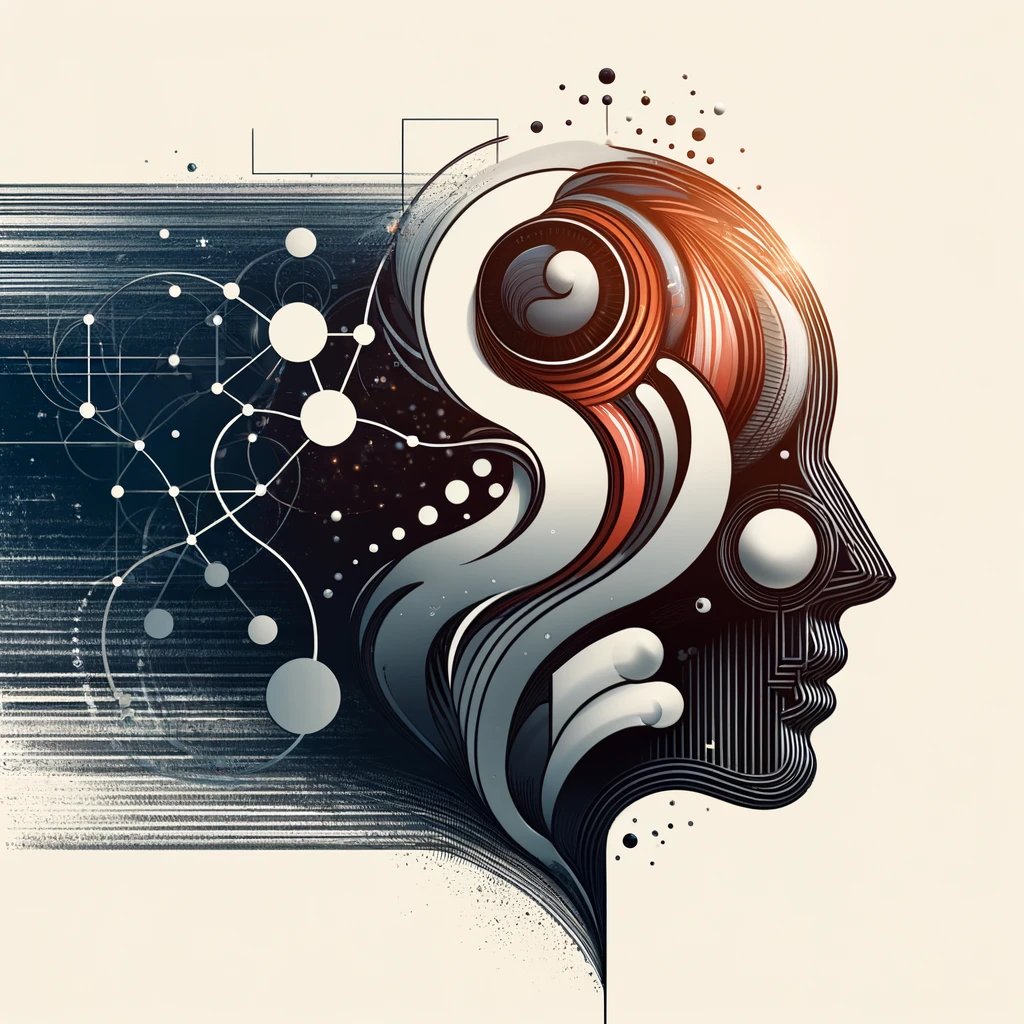



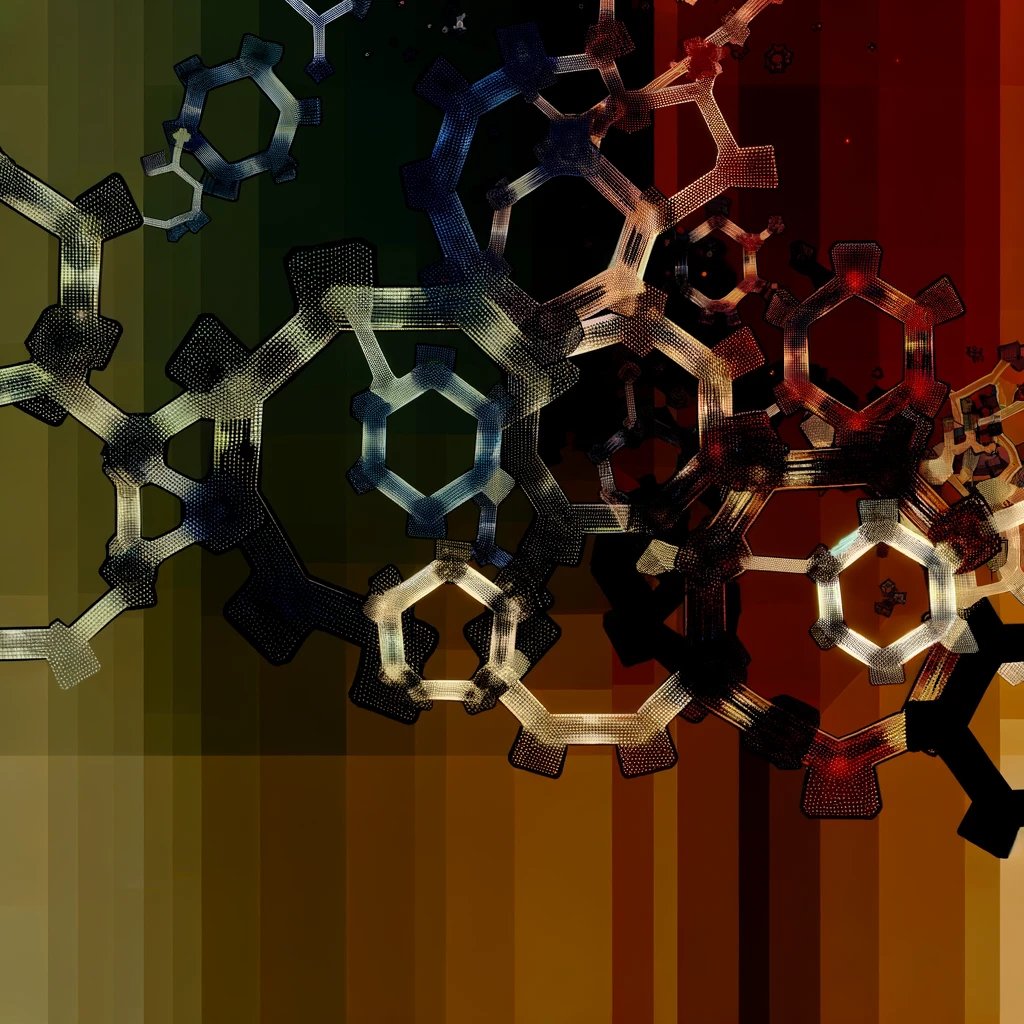
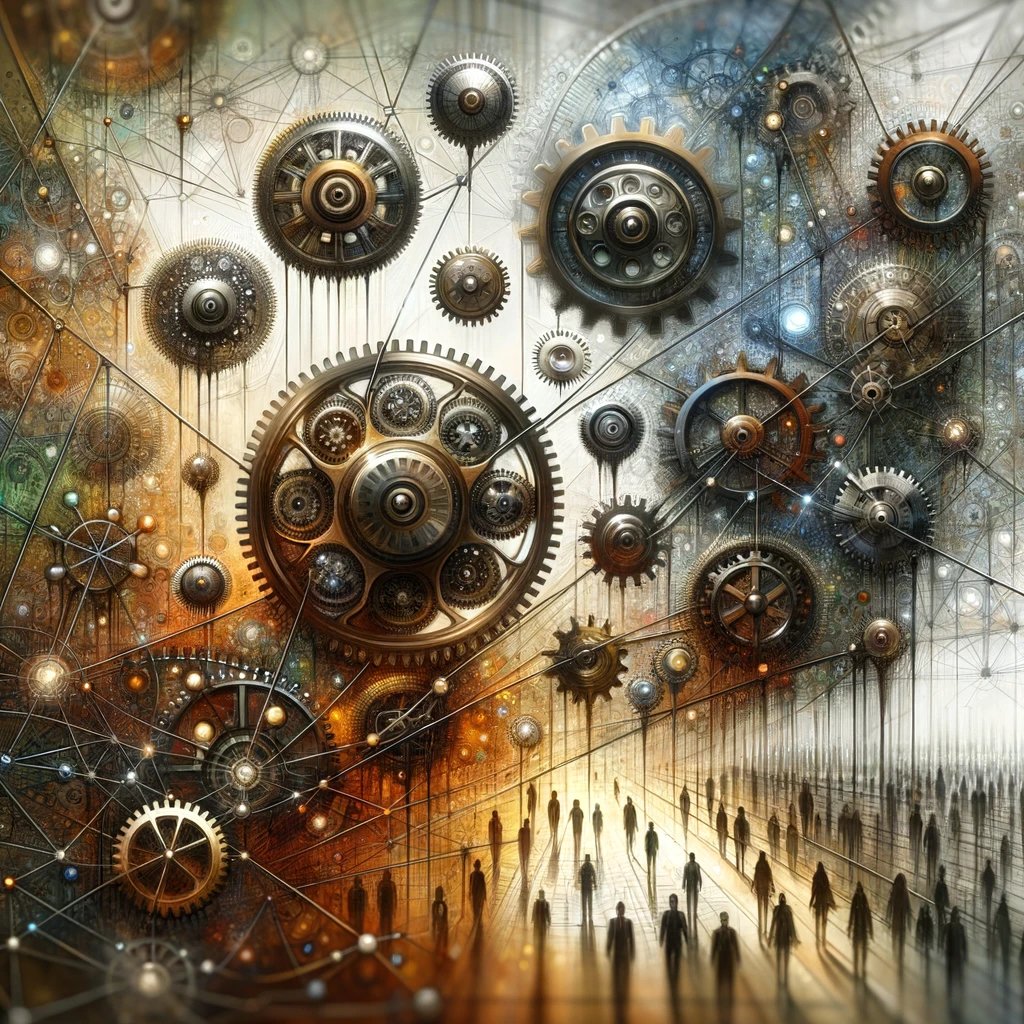



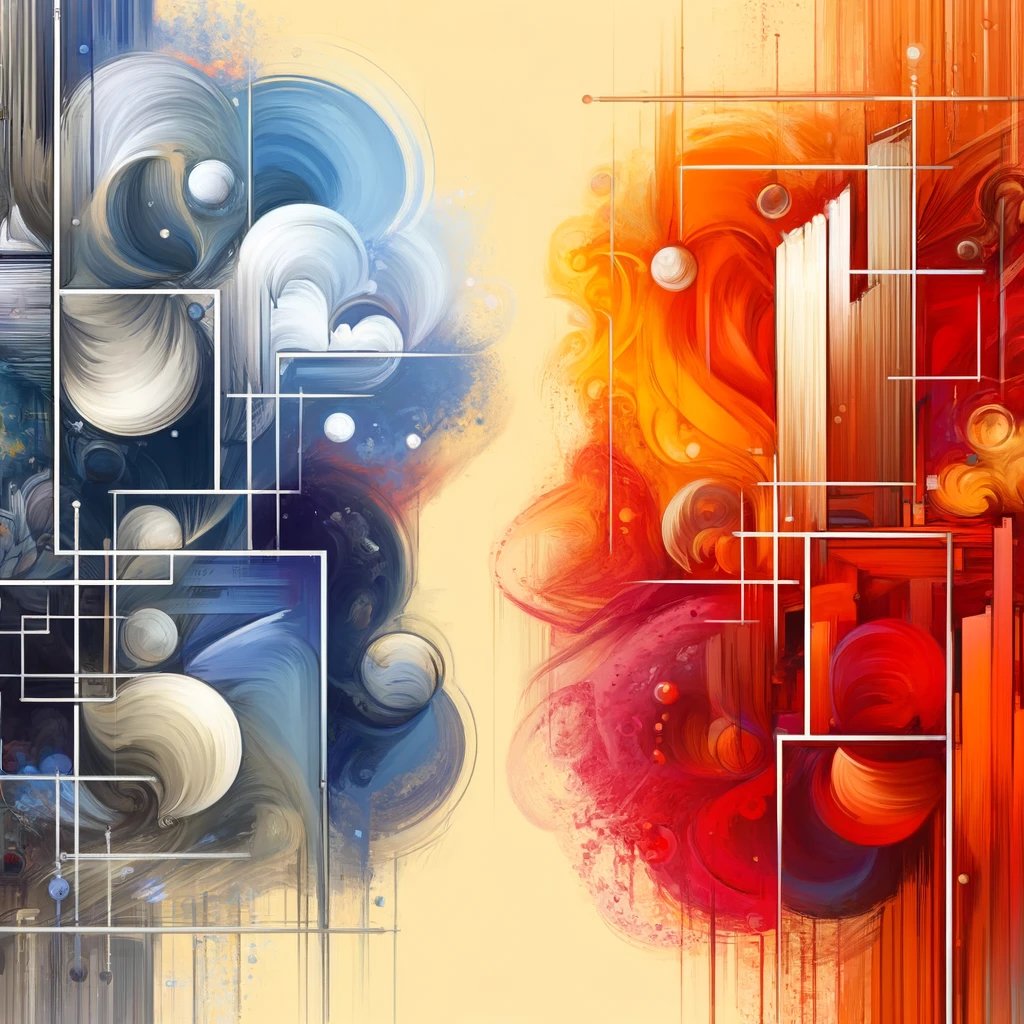




























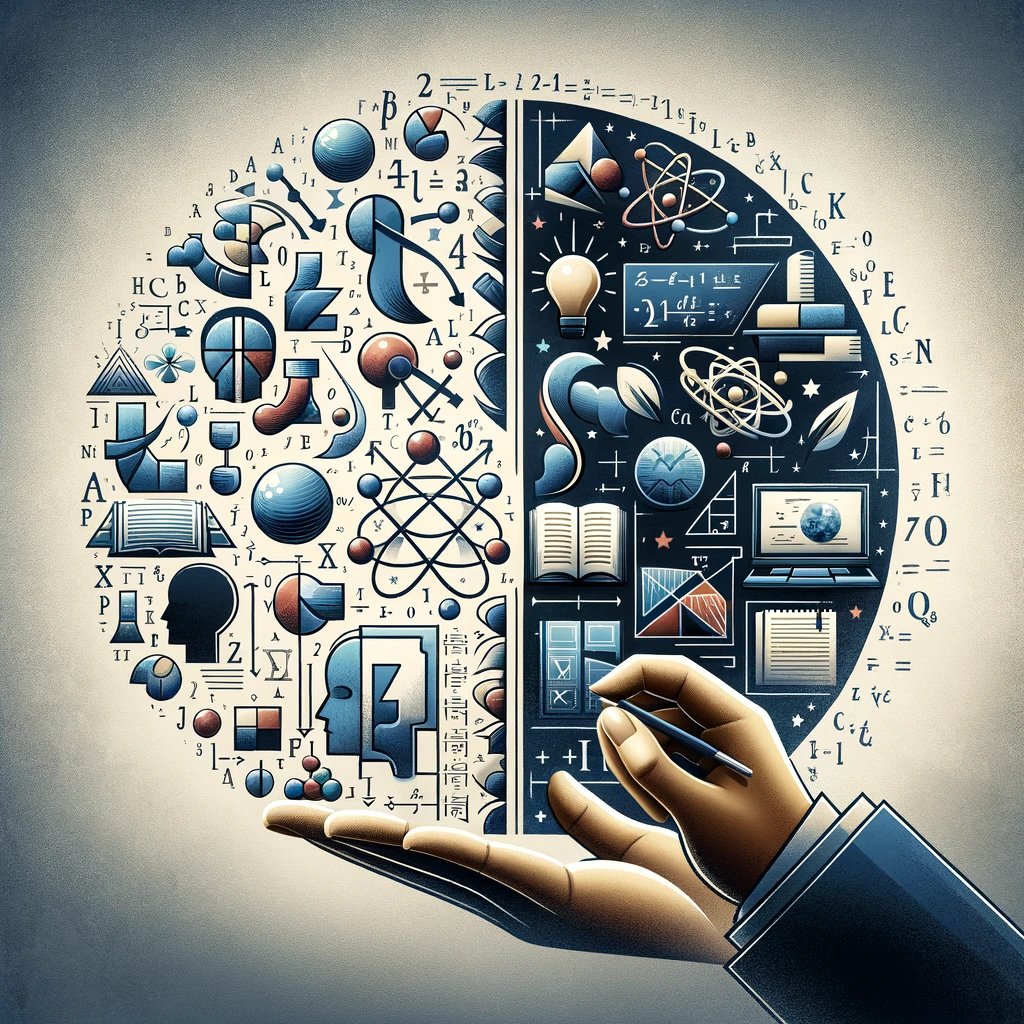

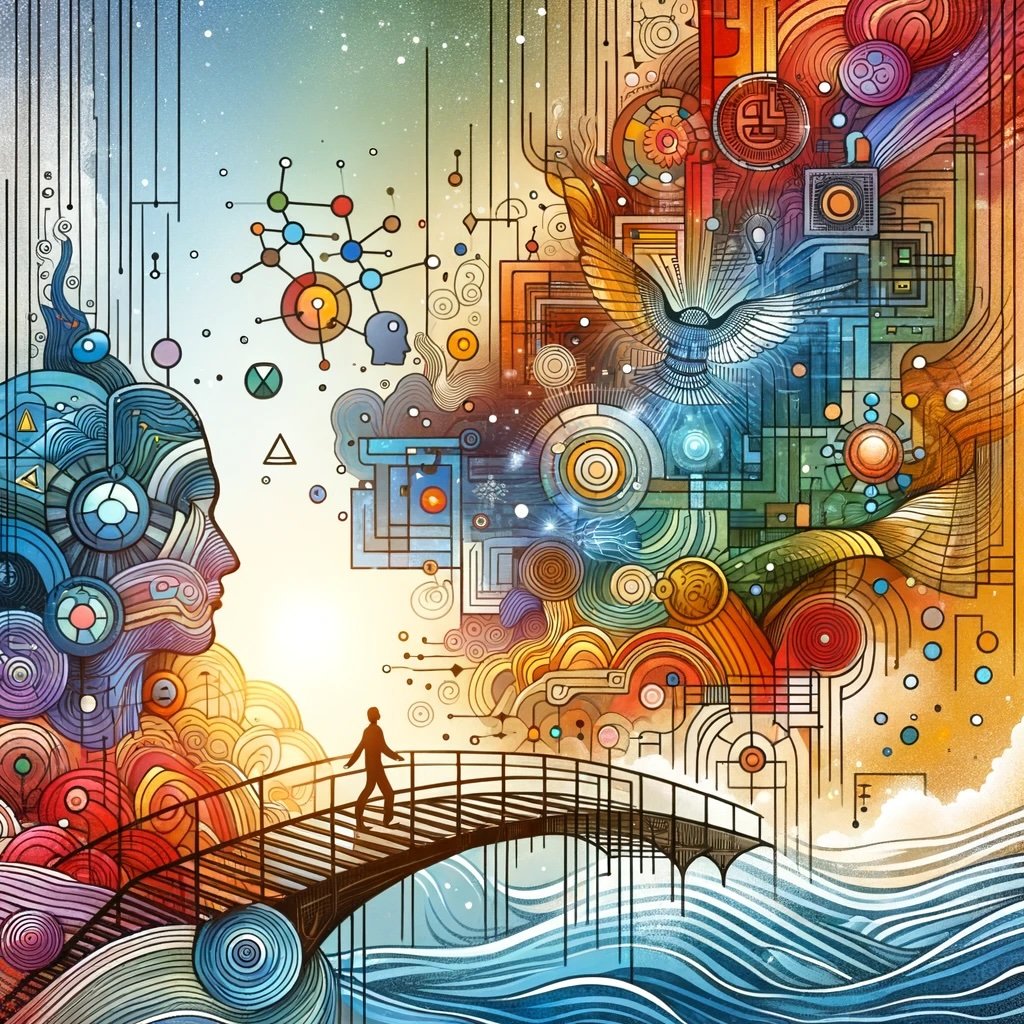














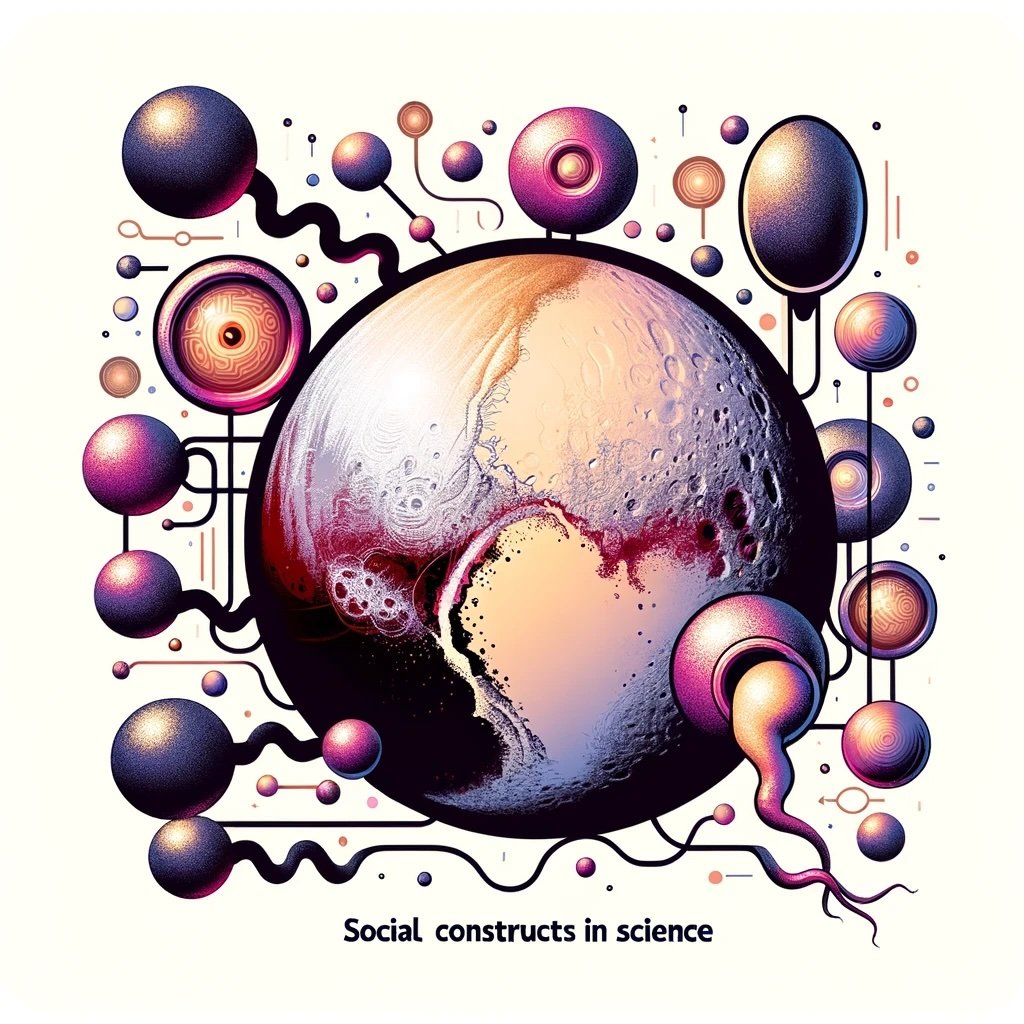
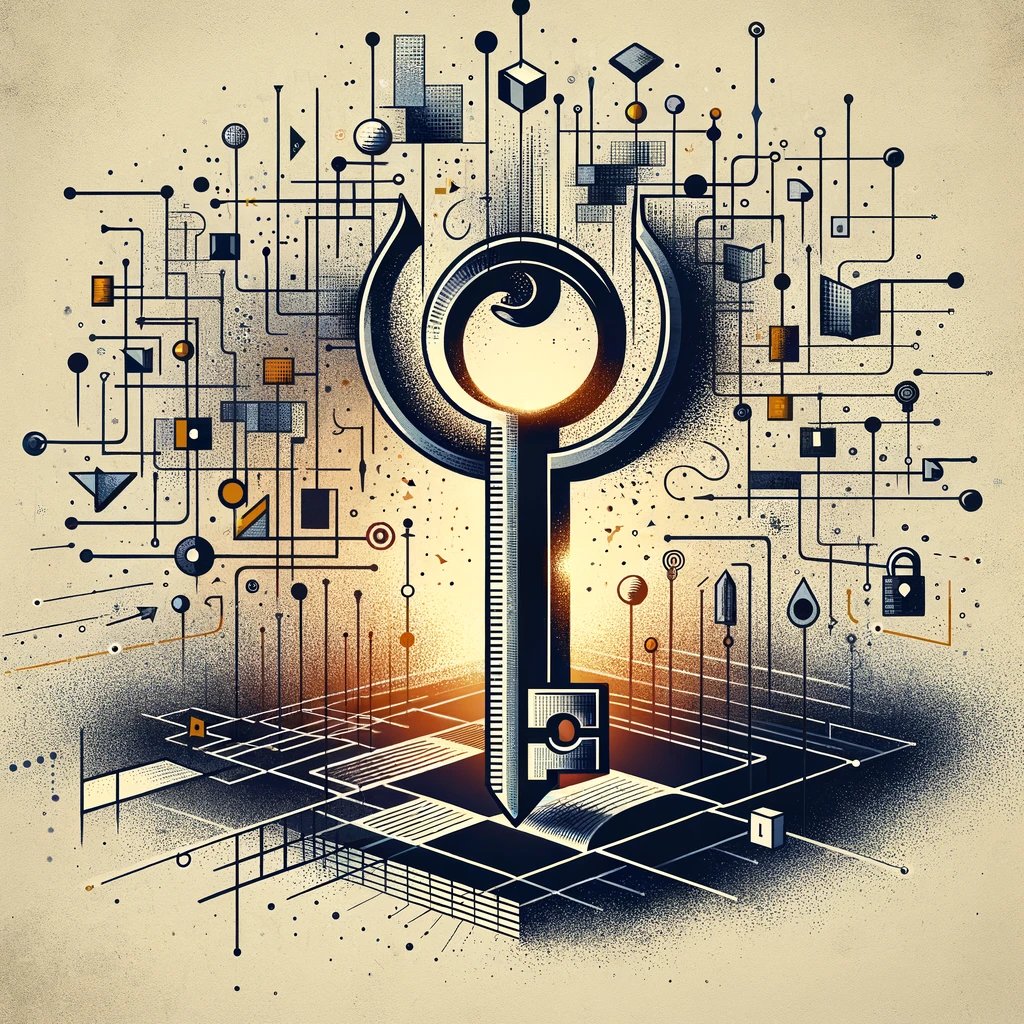



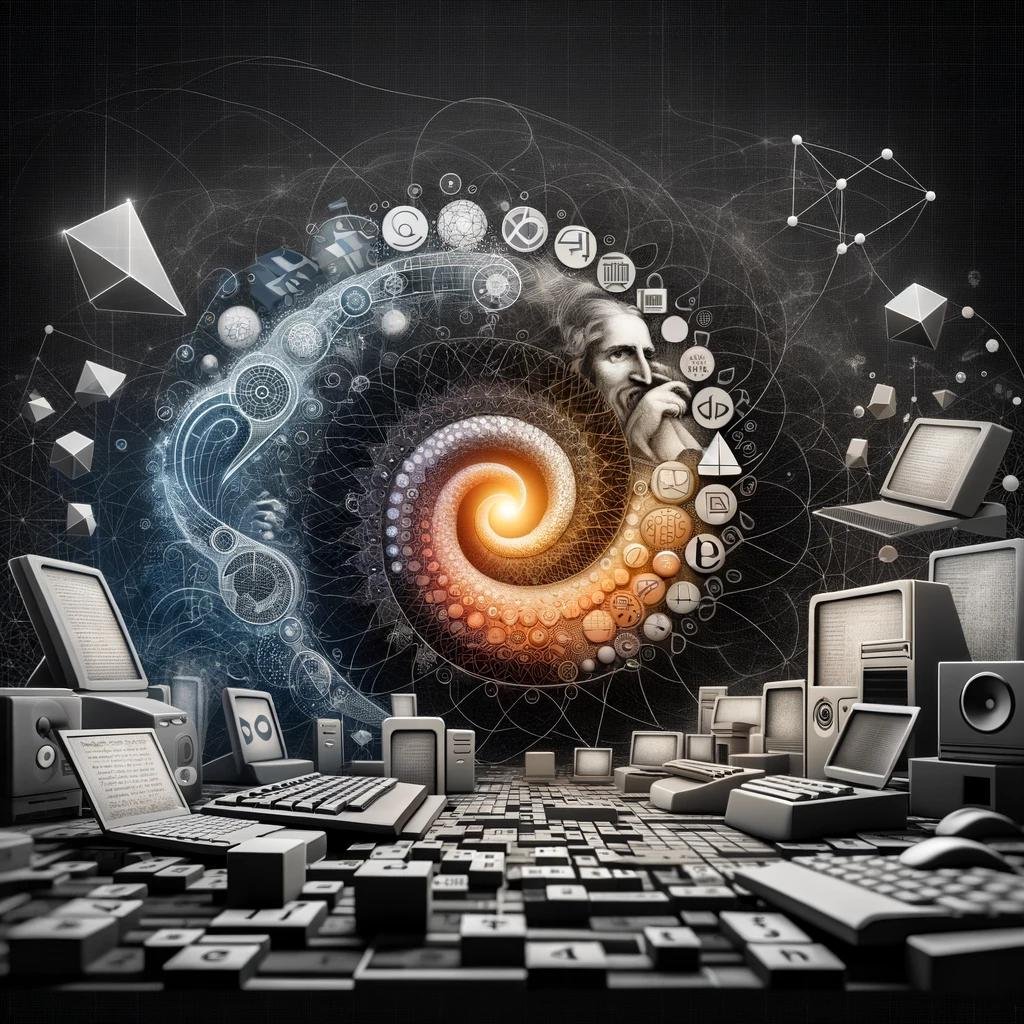




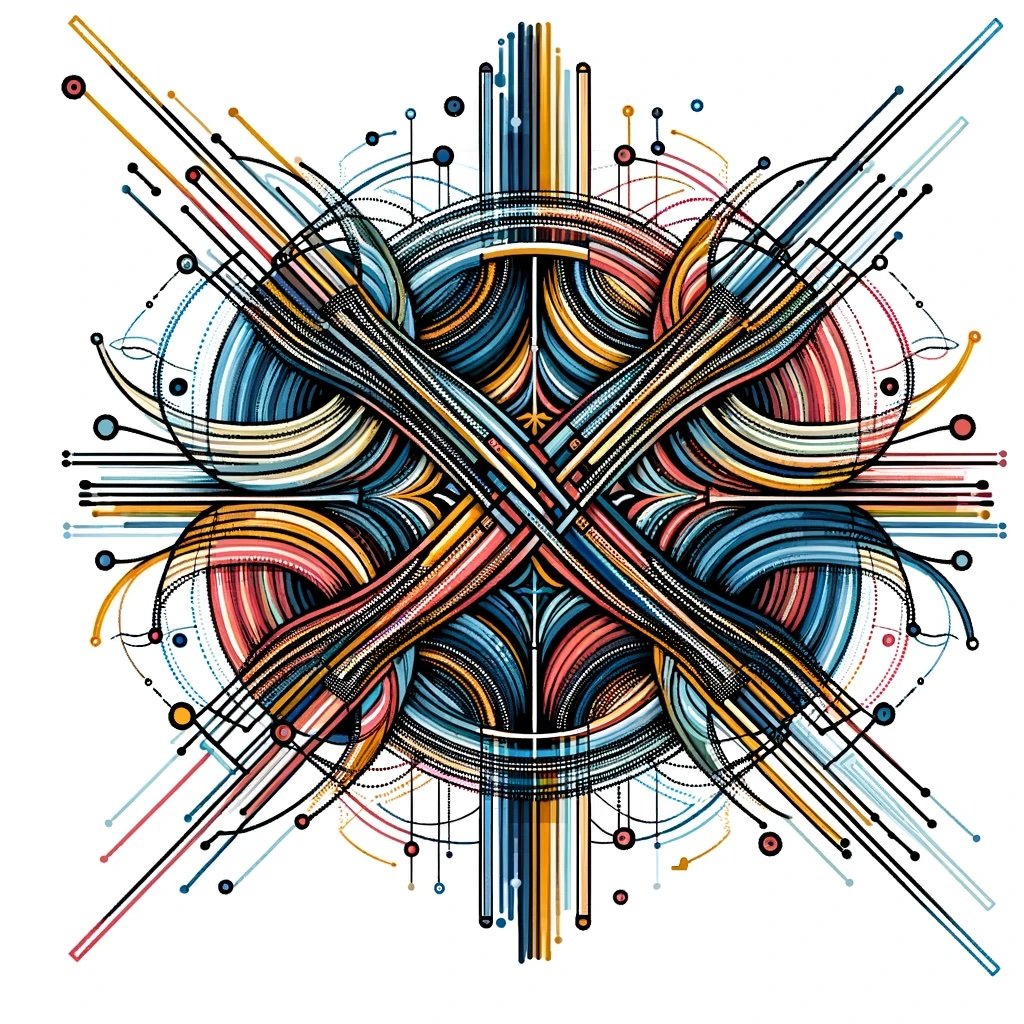

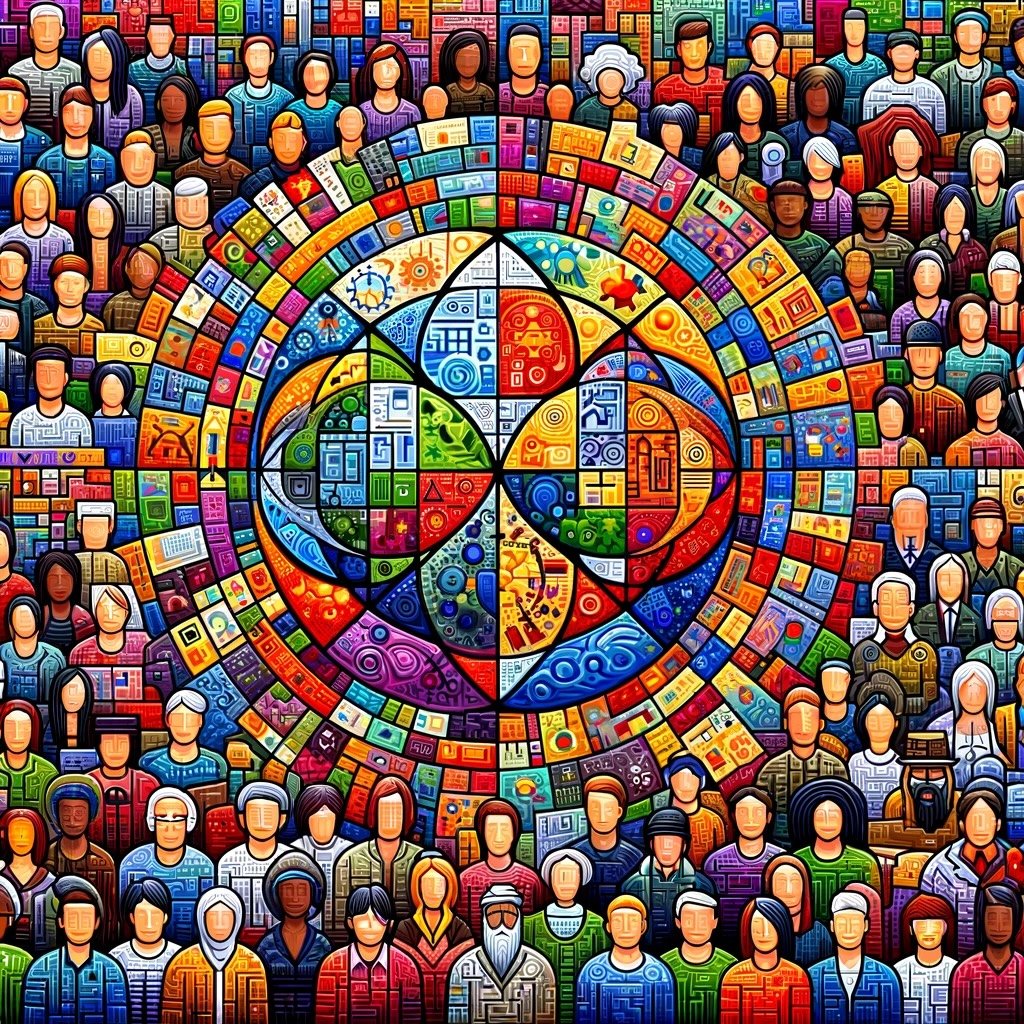

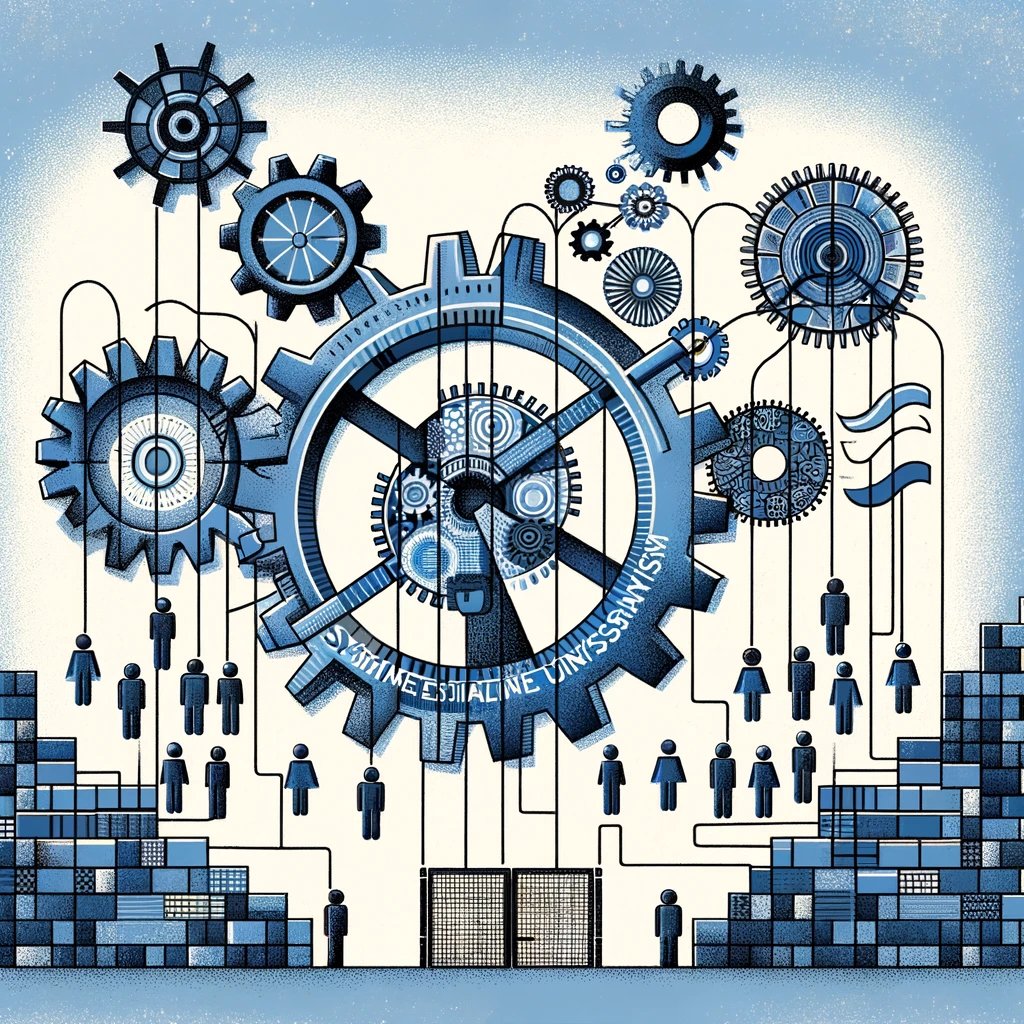
Examining the ways populism exploits incoherence and bad logic to make truth irrelevant, and the dangers this poses to political discourse.